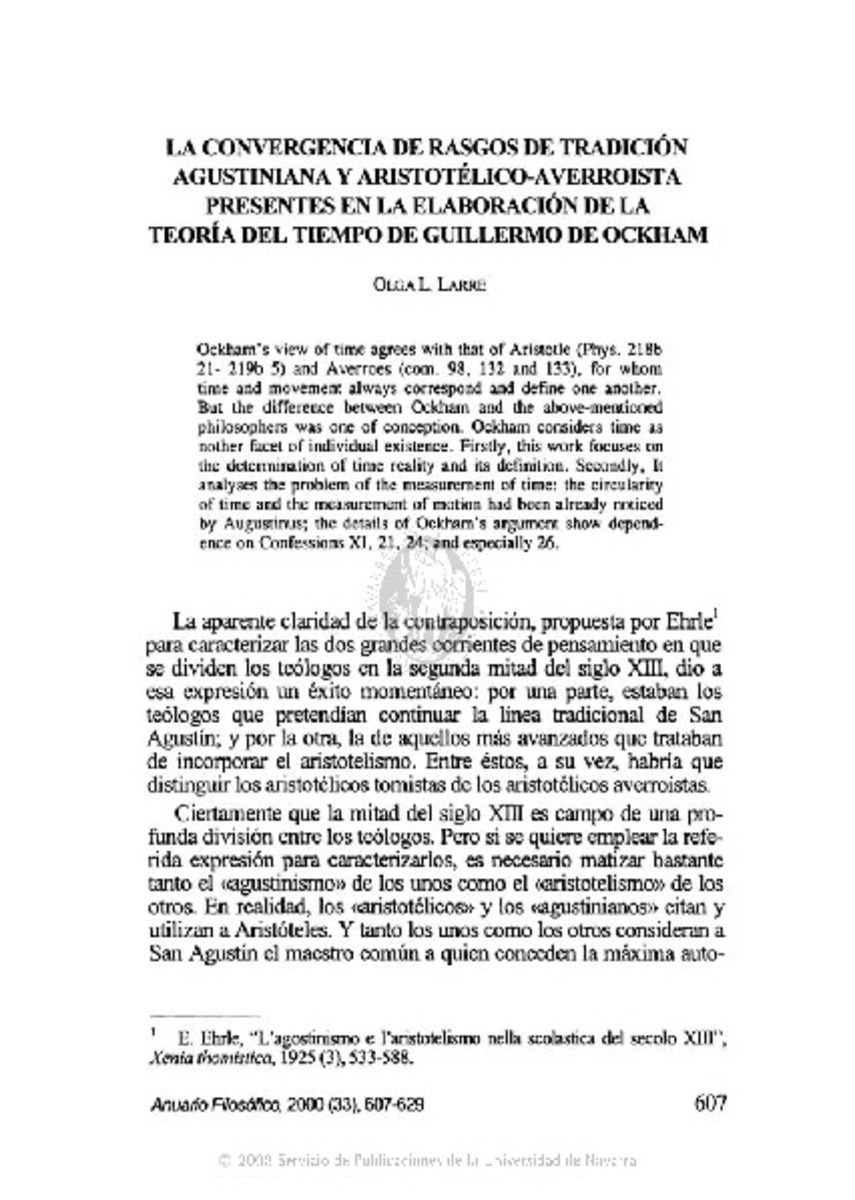Registro completo de metadatos
| Campo DC | Valor | Lengua/Idioma |
|---|---|---|
| dc.creator | Larre, O.L. (Olga L.) | es_ES |
| dc.date.accessioned | 2004-12-10T18:54:15Z | es_ES |
| dc.date.accessioned | 2007-03-08T16:39:44Z | - |
| dc.date.available | 2004-12-10T18:54:15Z | es_ES |
| dc.date.available | 2007-03-08T16:39:44Z | - |
| dc.date.issued | 2000 | es_ES |
| dc.identifier.citation | Anuario Filosófico 2000 (33), 607-629 | es_ES |
| dc.identifier.issn | 0066-5215 | es_ES |
| dc.identifier.uri | https://hdl.handle.net/10171/454 | - |
| dc.description.abstract | Ockham's view of time agrees with that of Aristotle (Phys. 218b 21- 219b 5) and Averroes (com. 98, 132 and 133), for whom time and movement always correspond and define one another. But the difference between Ockham and the above-mentioned philosophers was one of conception. Ockham considers time as nother facet of individual existence. Firstly, this work focuses on the determination of time reality and its definition. Secondly, It analyses the problem of the measurement of time: the circularity of time and the measurement of motion had been already noticed by Augustinus; the details of Ockham's argument show dependence on Confessions XI, 21, 24; and especially 26. | es_ES |
| dc.format.extent | 742400 bytes | es_ES |
| dc.format.extent | 742400 bytes | - |
| dc.format.extent | 87196 bytes | - |
| dc.format.extent | 1892 bytes | - |
| dc.format.mimetype | application/msword | es_ES |
| dc.format.mimetype | application/msword | - |
| dc.format.mimetype | application/pdf | - |
| dc.format.mimetype | text/plain | - |
| dc.language.iso | spa | es_ES |
| dc.rights | info:eu-repo/semantics/openAccess | es_ES |
| dc.title | La convergencia de rasgos de tradición agustiniana y aristotélico-averroísta presentes en la elaboración de la doctrina del tiempo de G. de Ockham | es_ES |
| dc.type | info:eu-repo/semantics/article | es_ES |
| dc.identifier.doi | 10.15581/009.33.29541 | es_ES |
Ficheros en este ítem:
Estadísticas e impacto
Los ítems de Dadun están protegidos por copyright, con todos los derechos reservados, a menos que se indique lo contrario.






